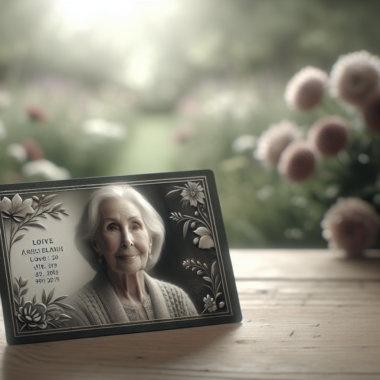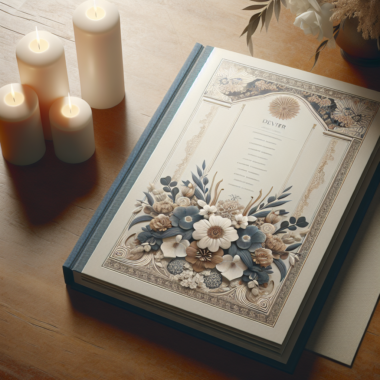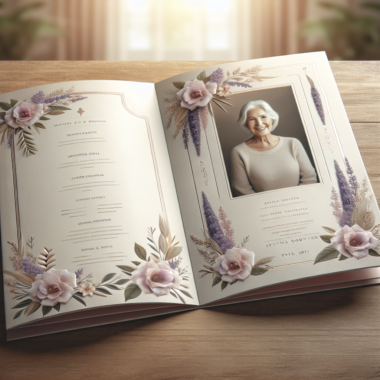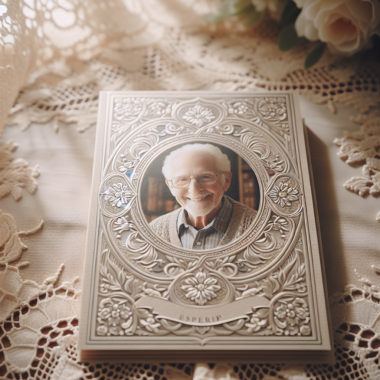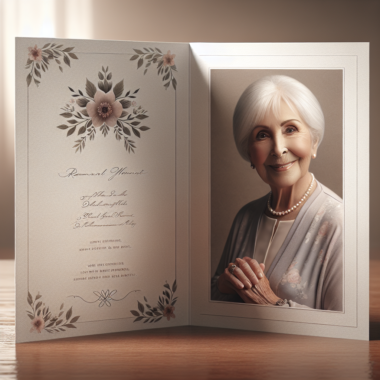The History of Memorial Cards</h2>Memorial cards have a rich history dating back to 15th century Europe. Originally called “death cards,” they were used to announce a person’s passing. These early cards were simple, featuring a black border and the deceased’s name.
The tradition spread globally, including to the United States, becoming an integral part of the grieving process. In the 19th century, memorial cards evolved to include more elaborate and personalized designs. Families began incorporating photographs, religious symbols, and verses.
These cards became cherished keepsakes, serving as tangible reminders of the deceased. Memorial cards play a crucial role in the grieving process, providing comfort and solace to mourners. They serve as physical representations of the deceased, allowing family and friends to hold onto a piece of their memory.
Designing and personalizing a memorial card can be therapeutic, helping mourners express emotions and pay tribute to their loved ones. The design and personalization of memorial cards are essential in honoring the deceased’s memory. Families can choose designs reflecting the personality and spirit of their loved one, including meaningful images, verses, poems, or quotes.
Personalization extends to layout, size, shape, and paper type, allowing families to create unique and meaningful tributes. Memorial cards preserve and honor memories by capturing the essence of the deceased. They provide a glimpse into the person’s life and personality through photographs, symbols, and personalized messages.
These cards serve as reminders of the impact the deceased had on others, allowing their legacy to live on through shared memories and stories. In funeral services, memorial cards provide tangible keepsakes for mourners. They are often distributed at services, offering a way for attendees to honor and remember the deceased long after the event.
The cards can also serve as a unifying element, bringing together family and friends in remembrance. As cherished keepsakes, memorial cards allow individuals to hold onto their loved ones’ memories. They provide comfort during times of grief and can be passed down to future generations, ensuring the deceased’s legacy lives on.
In the digital age, memorial cards are evolving to meet changing needs. While traditional printed cards remain popular, digital memorial cards are emerging. These offer new opportunities for personalization and customization, including interactive and multimedia tributes.
Digital cards can be easily shared online, allowing for greater connectivity and support during times of grief. Memorial cards continue to provide comfort and solace to those grieving the loss of a loved one. From their simple beginnings to modern personalized designs, these cards serve as cherished keepsakes that honor and preserve memories.
As technology advances, memorial cards will likely continue to play an important role in helping individuals navigate the grieving process and honor their loved ones’ legacies.
If you are looking for ways to honor a loved one’s memory, you may want to consider including funeral memorial poems in their memorial cards. These poems can provide comfort and solace to those who are grieving, and they can also serve as a beautiful tribute to the person who has passed away. For more ideas on how to create a meaningful memorial service, you can check out this article on funeral memorial poems.
 Free Shipping Over $50
Free Shipping Over $50  888-432-8363
888-432-8363


 Obituary/Programs
Obituary/Programs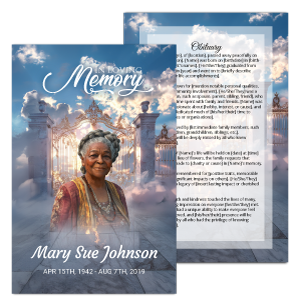 No-Fold Memorial Programs
No-Fold Memorial Programs 4 Page Funeral Programs
4 Page Funeral Programs 8 Page Memorial Programs
8 Page Memorial Programs 12 Page Funeral Programs
12 Page Funeral Programs 16 Page Funeral Programs
16 Page Funeral Programs 20 Page Funeral Programs
20 Page Funeral Programs Tri-Fold Funeral Programs
Tri-Fold Funeral Programs Complete Memorial Packages
Complete Memorial Packages
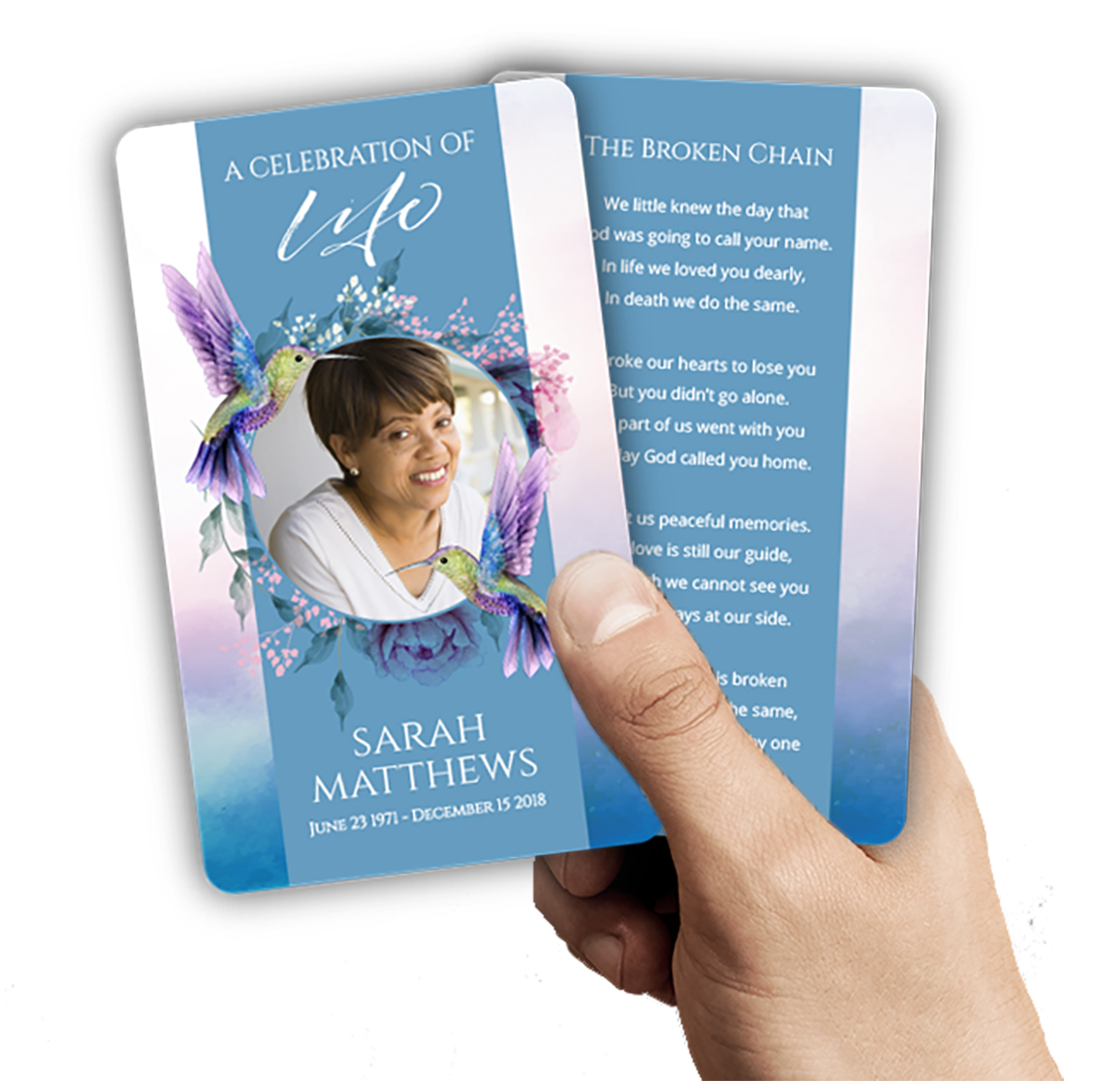 Cards & Bookmarks
Cards & Bookmarks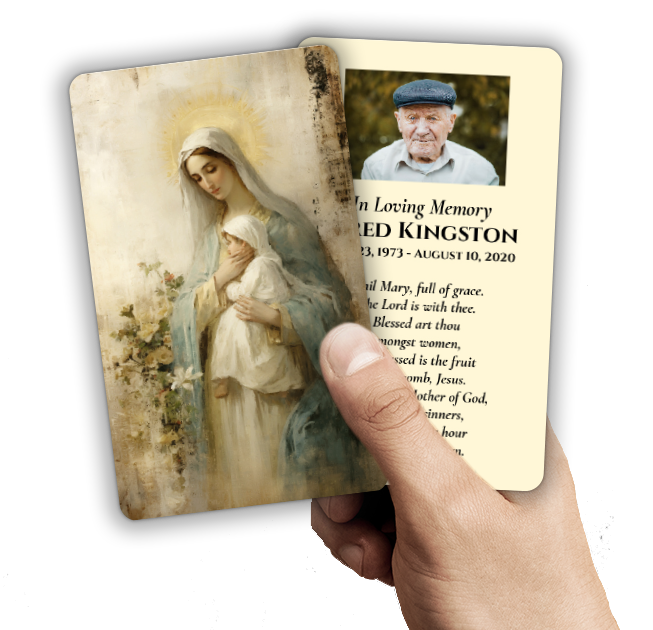 Saint Prayer Cards
Saint Prayer Cards Folded Memorial Cards
Folded Memorial Cards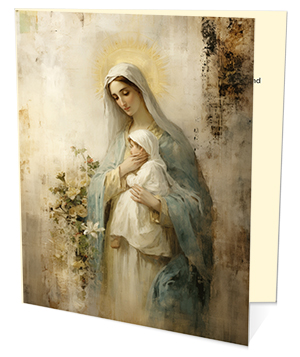 Folded Holy Cards
Folded Holy Cards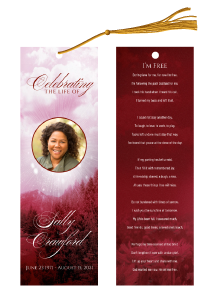 Memorial Bookmarks
Memorial Bookmarks Thank You Cards
Thank You Cards Share-A-Memory Cards
Share-A-Memory Cards Memorial Magnets
Memorial Magnets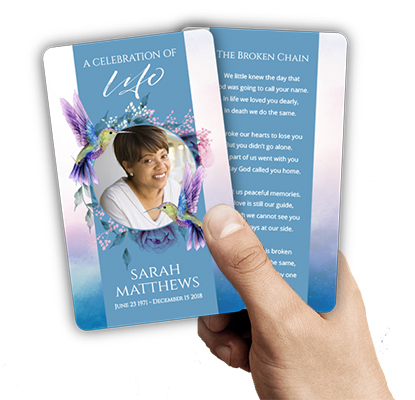
 Memorial Posters
Memorial Posters Guest Books
Guest Books Slide Shows
Slide Shows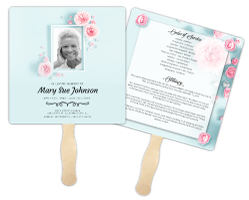 Memorial Fans
Memorial Fans Death Announcements
Death Announcements Take Away Keepsakes
Take Away Keepsakes
 Church Products
Church Products
